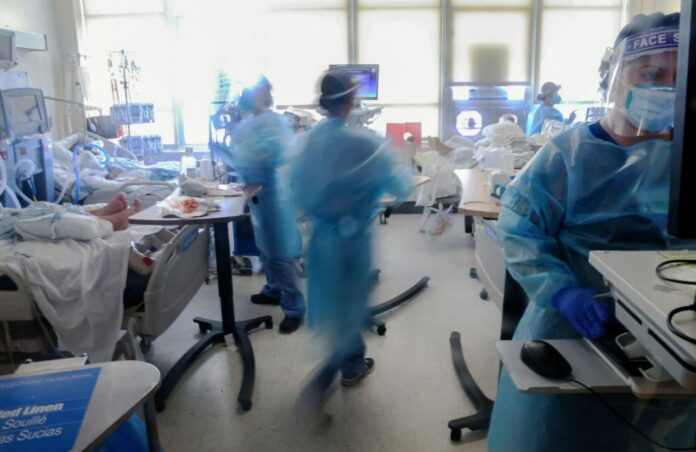According to a new study, people who had been infected more than once were 3.5 times more likely to have lung problems, 3 times more likely to have heart problems, and 1.6 times more likely to have brain problems than people who had only been infected once.
Since the start of the COVID-19 outbreak around three years ago, scientists have established that even a single infection can cause short- and long-term health risks affecting practically every organ system in the body. Additionally, they found that even after developing natural antibodies following the initial infection and receiving vaccine and booster doses, patients can still contract COVID-19.
New research from Washington University School of Medicine in St. Louis and the Veterans Affairs St. Louis Health Care system reveals the negative effects of reinfection on patients’ health. Scientists discovered that recurrent SARS-CoV-2 infections significantly raise the likelihood of serious health problems affecting multiple organ systems.
Hospitalization, disease in the lungs, heart, brain, blood, musculoskeletal system, and digestive system, and even death are all possible results. Diabetes, kidney disease, and mental health problems can also be caused by re-infection.
The findings were published in Nature Medicine today.
“During the past few months, there’s been an air of invincibility among people who have had COVID-19 or their vaccinations and boosters, and especially among people who have had an infection and also received vaccines; some people started to referring to these individuals as having a sort of superimmunity to the virus,” says senior author Ziyad Al-Aly.
“Without ambiguity, our research showed that getting an infection a second, third or fourth time contributes to additional health risks in the acute phase, meaning the first 30 days after infection, and in the months beyond, meaning the long COVID phase.”
The study also revealed that the risk appears to rise with each infection. This implies that it’s best to prevent a third COVID-19 infection, even if you’ve already had two, according to Al-Aly. “And if you’ve had three infections, it’s best to avoid the fourth.”
As the United States enters the winter season, limiting exposure to the virus is particularly crucial because new strains are constantly appearing, evolving, and already leading to an increase in illnesses in some regions of the nation, according to Al-Aly.
“People should do their best to prevent repeat infections by masking, for example, getting all of their eligible boosters, staying home when sick. Also, get a flu shot to prevent illness. We really need to do our best to reduce the chance we will have a twin-demic of both COVID-19 and the flu this winter season.”
This study examined 5.8 million de-identified medical records from the U.S. Department of Veterans Affairs, the nation’s biggest integrated health-care system. Patients included all ages, races, and sexes.
From March 1, 2020, through April 6, 2022, the researchers collected a controlled data set of 5.3 million individuals who did not test positive for COVID-19 infection. The researchers also created two control groups using the same time period: one group included roughly 41,000 patients who had two or more reported infections and another group included more than 443,000 people who had tested positive for one COVID-19 infection. The majority of those in the latter group had two or three infections, a few had four infections, and no one had five or more illnesses.
Statistical modelling was used to look at the health risks of getting COVID-19 again within the first 30 days and up to six months after getting the virus.
Variants of COVID-19 were taken into consideration, including delta, omicron, and BA.
Those who had been vaccinated prior to reinfection also experienced negative consequences.
In general, the researchers discovered that those with COVID-19 reinfections were twice as likely to die and triple the likelihood of being admitted to the hospital compared to individuals without reinfections.
Also, people who had been infected more than once were 3.5 times more likely to have lung problems, 3 times more likely to have heart problems, and 1.6 times more likely to have brain problems than people who had only been infected once.
“Our findings have broad public health implications as they tell us that strategies to prevent or reduce the risk of reinfection should be implemented,” Al-Aly adds. “Going into the winter season, people should be aware of the risks and practice vigilance to reduce their risk of infection or reinfection with SARS-CoV-2.”
Source: 10.1038/s41591-022-02051-3
Image Credit: Mario Tama/Getty Images
